UWE Bristol to lead ‘Immersive Arts’ – a new £6m project supporting UK artists to work with immersive tech
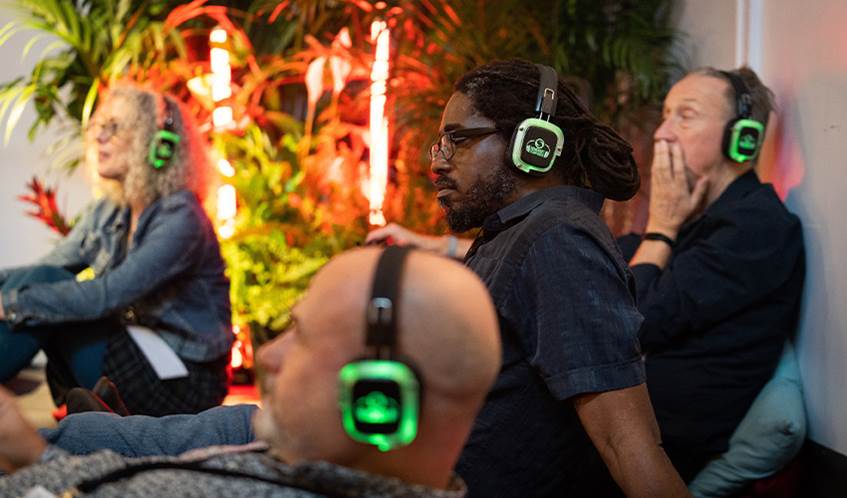
A new project, led by the University of the West of England (UWE Bristol), will support over 200 UK-based artists and organisations to explore the creative potential of virtual, augmented and mixed reality technologies.
Funded through a £6 million grant from the XRtists scheme, the three-year cross-UK ‘Immersive Arts’ project will build on the UK’s record of supporting artists to unlock the creative potential of new technology.
Immersive Arts will be led by UWE Bristol, with the main hub at Pervasive Media Studio in Bristol and Watershed as Executive Producer.
Working in partnership with University of Bristol and cultural organisations in Belfast and Derry, Cardiff and Glasgow they will generate a rich programme of inclusive and accessible opportunities, breaking down the barriers for artists of all backgrounds to engage with immersive tools.
The term ‘immersive technology’ encompasses a wide spectrum of tools and technologies, including the games engines used to make virtual and augmented reality apps such as Beat Saber or Pokémon Go, as well as the motion capture, LED screens and spatial audio magic of Abba Voyage.
The Immersive Arts programme will give artists based in the UK the opportunity to access training, mentoring, specialist facilities and vital funds, with £3.6 million in grant funding available to help them get their ideas off the ground.
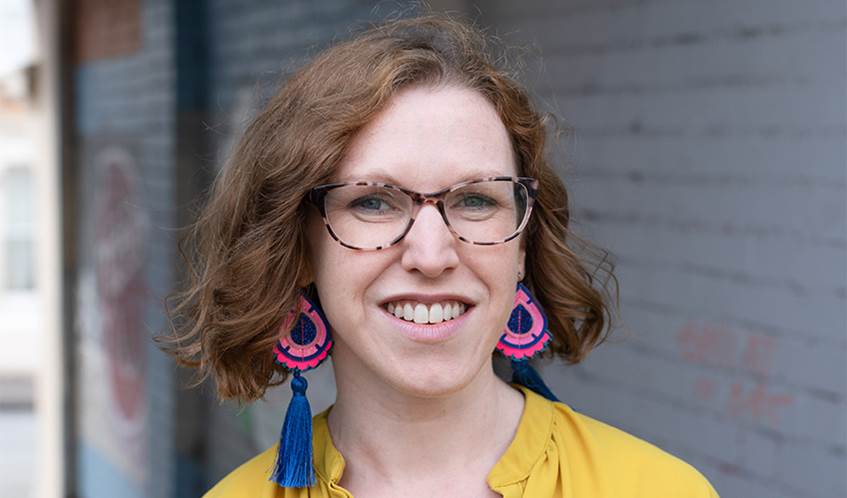
Principal Investigator and Director of Immersive Arts, Verity McIntosh, Associate Professor of Virtual and Extended Realities at UWE Bristol, said: “I am delighted that this incredible consortium of partners will now be able to support more than 200 artists from across the UK. We look forward to working with creatives of all backgrounds who are interested in developing their practice, and testing the boundaries of what might be artistically possible using immersive technologies.
“In the coming three years we will be offering an inclusive and accessible programme of research, training, funding opportunities and events. Immersive Arts has been designed to foster a growing, collaborative community of UK artists experimenting with immersive materials, and connecting with audiences around the world.”
Funding for Immersive Arts comes from an ambitious partnership between the Arts and Humanities Research Council, Arts Council England, Creative Scotland, Arts Council of Northern Ireland and Arts Council of Wales.
Culture Secretary Lucy Frazer said: “The government has already invested £75 million to build a network of R&D labs across the UK that will put us at the forefront of advancements in visual effects, motion-capture technology, and AI for the screen and stage industries. This new funding will help even more of our brightest artists and creatives harness the power of this innovative technology. Developing the skills and infrastructure underpinning immersive technology will maximise the potential of our powerful creative industries and achieve our goal of growing them by £50 billion by 2030.”
Minister for Tech and the Digital Economy, Saqib Bhatti said: “From the printing press to digital streaming, leaps forward in technology have always led to advances in art and creativity. The Immersive Arts programme will ensure that British creatives are given access to the tech they need to push new creative frontiers. Blockbuster shows like Abba Voyage demonstrate that extended reality brings about artistic innovation and a list of economic benefits that goes on and on and on.”
Arts and Humanities Research Council Executive Chair Professor Christopher Smith said: “To maintain the UK’s place at the vanguard of the creative industries, we need to invest in the skills and technologies that underpin them. Extended reality is an exciting new frontier in creative technology that offers world-expanding possibilities.
“This investment in the Immersive Arts consortium by an ambitious partnership of the UK's arts councils, Creative Scotland and AHRC will allow us to support skills development and unlock further innovation and economic growth, bringing the power of this technology to new audiences and partners.”
Supporting artists across the UK
The four core partners based in each of the nations of the UK who will work closely with artists in their region are:
- Cryptic in Glasgow, Scotland
- Nerve Centre in Belfast and Derry, Northern Ireland
- Wales Millennium Centre in Cardiff, Wales
- Watershed in Bristol, England
In the past five years these four partners have supported more than 5,500 artists, and shared work with an audience of over 70.5 million people.
Additional partners with specialist expertise supporting the programme are:
- Crossover Labs, experts in training and artist development using immersive media
- Unlimited, working with disabled artists and audiences, challenging the culture sector and changing perceptions of disability
- XR Diversity Initiative, dedicated to making the XR community more inclusive
- Immerse UK, the UK’s leading membership organisation for immersive technologies
Funding for Immersive Arts comes from:
- The Arts and Humanities Research Council
- Arts Council England
- The National Lottery through Creative Scotland
- The Arts Council of Northern Ireland
- The National Lottery through Arts Council of Wales
Darren Henley, CEO at Arts Council England, said: “Creative producers and cultural organisations have always been vital in unlocking the potential of new technology, as we are seeing in the innovative experiences artists and cultural organisations are creating for immersive platforms. We are excited to launch Immersive Arts with our UK-wide partners, to help the cultural sector develop the skills to push the creative potential of emerging technologies even further, and create opportunities for more artists and organisations to work with these technologies for the first time.”
Related news

12 December 2025
Arnolfini appoints Professor Paul Gough as new Chair of Trustees
Arnolfini, partner organisation of UWE Bristol, has appointed Professor Paul Gough as its new Chair of Trustees.

13 November 2025
Bristol’s screen industry experiences “boom-and-bust cycle” after post-pandemic recovery, new research from UWE Bristol finds
New research from UWE Bristol provides detailed insight into Bristol's screen sector.

30 October 2025
Lecturer shortlisted for prestigious European photography award
Dr Amak Mahmoodian, senior lecturer in photography at UWE Bristol, has been shortlisted for the Deutsche Börse Photography Foundation Prize 2026.

27 October 2025
Graduate wins second industry award for breakthrough film
Tatiana McCabe has won a Wildscreen Panda Award for her documentary which follows a local hero protecting coastal wildlife in Uruguay.

02 October 2025
Documentary by UWE Bristol graduate airs on national television
Hannah Tyson, a UWE Bristol MA Filmmaking graduate, is celebrating the broadcast of her documentary ‘Jazzy’s MMA Dream’, which has aired on CBBC.
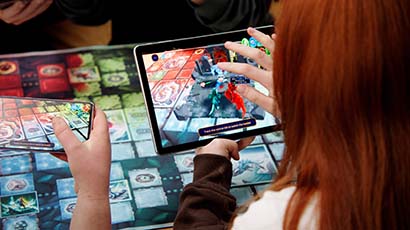
11 September 2025
New study to investigate augmented reality as an intervention for emotionally based school avoidance
A UWE Bristol researcher will support a new study exploring whether an augmented reality board game can help young people with emotionally based school avoidance (EBSA).
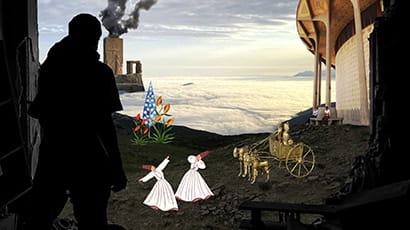
26 August 2025
UWE Bristol MA students present Showcase at Spike Island
Students from MA Fine Art, MA Graphic Arts, and MA Multi-Disciplinary Printmaking will exhibit their work at the Showcase MA Degree Show, from 4 September.
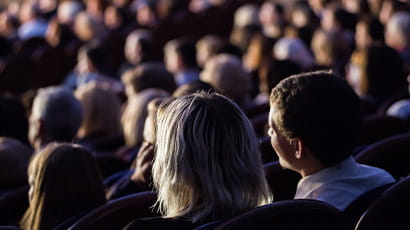
23 May 2025
Academics feature in documentary exploring the rebirth of Bristol's iconic Megascreen
Professor Mark Bould and Professor Charlotte Crofts are featured in a new documentary about the fascinating journey of the former Bristol IMAX cinema.

21 May 2025
Students reveal creative responses to real-world experiences at UWE Bristol Showcase
UWE Bristol’s Showcase, celebrating student creativity and innovation across the College of Arts, Technology and Environment, returns this June.
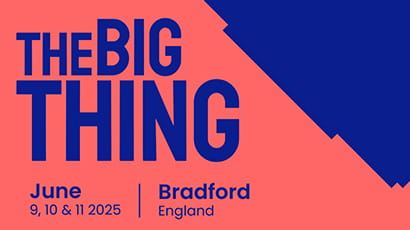
19 May 2025
The Big Thing, a landmark event for immersive artists in the UK, comes to Bradford
Immersive Arts will launch its first major event this June in Bradford, the UK’s City of Culture, to bring together the country’s immersive arts community.
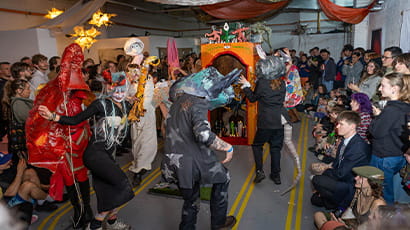
17 April 2025
UWE Bristol art students showcase work at Spike Island Open Studios
Spike Island – the home to UWE Bristol’s BA and MA Fine Art courses - opens its doors for the annual Open Studios on 2 May.
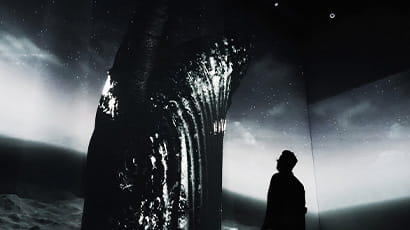
16 April 2025
More than 80 UK projects receive nearly £1.2 million in first Immersive Arts funding round
Almost £1.2 million has been allocated to 83 artist-led projects across the UK.
You may also be interested in

Media enquiries
Enquiries related to news releases and press and contacts for the media team.
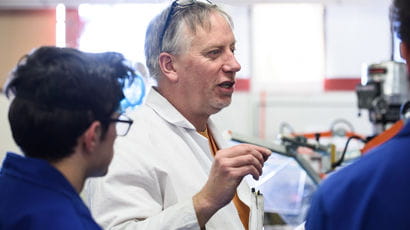
Find an expert
Media contacts are invited to check out the vast range of subjects where UWE Bristol can offer up expert commentary.






